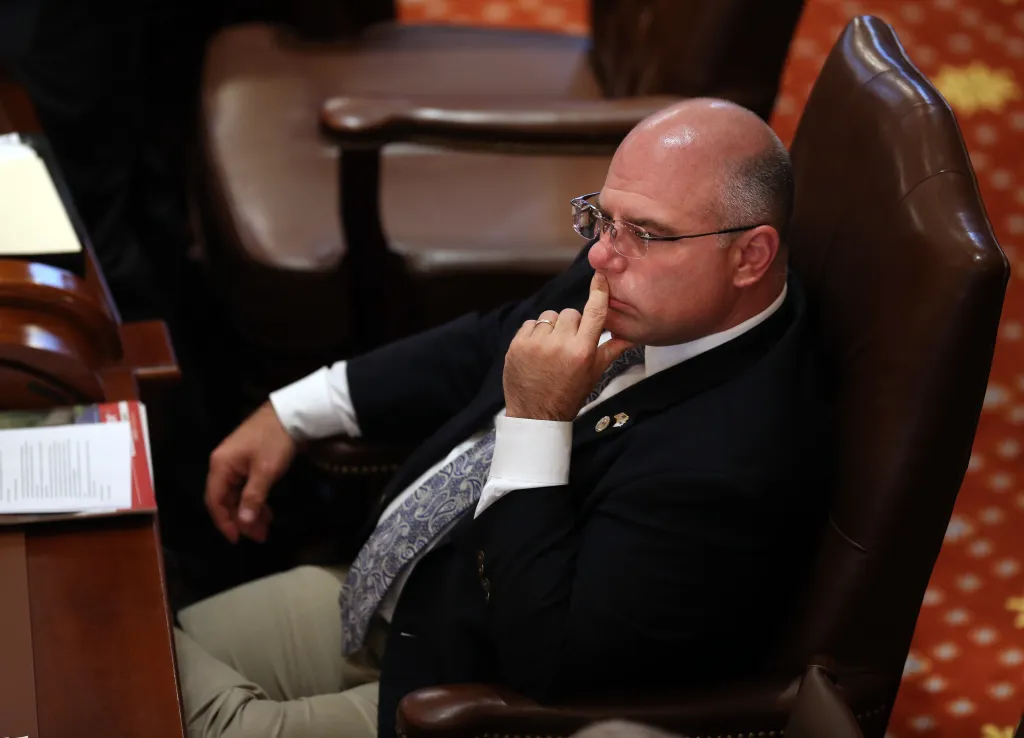A former Illinois state senator and candidate for governor was sentenced Wednesday in federal court to 3 1/2 years in prison after pleading guilty to fraudulent use of campaign funds, money laundering and tax evasion, according to AP News.
U.S. District Court Judge Colleen Lawless, who also ordered William “Sam” McCann to pay $684,000 in restitution, noted during sentencing that McCann continued to siphon campaign money for personal use even after federal authorities confronted him. And she said he fraudulently claimed that he was physically and mentally unable to stand trial during a bizarre series of delays leading up to his February bench trial.
McCann, 54, who declared “God’s got this” after firing his attorneys in 2023 and announcing that he would represent himself, later capitulated and started trial with new representation before throwing in the towel on the third day of testimony. He entered a no-strings open guilty plea to seven counts of wire fraud and one count each of money laundering and tax evasion. He faced up to 20 years in prison for each count of fraud and money laundering alone.
A state senator from 2011 to 2019, McCann formed the Conservative Party of Illinois in a 2018 bid for governor. His candidacy drew $3 million in contributions from a labor union which considered him a worker-friendly “lunch-pail Republican.”
But even after sitting through four FBI interviews in the summer of 2018, in which he acknowledged misspending, he burned through another $340,000 in campaign funds for personal use during the following year.
McCann last lived in Plainview, 80 kilometers northeast of St. Louis.
Trial testimony indicated McCann tapped campaign cash to buy two pickups titled in his name and used personally. He bought a recreational vehicle and trailer which he listed with an Ohio business for online rental by Sam McCann, then used campaign money to rent them from himself under the name William McCann. He did not report the income on his federal tax return, nor did he report a $10,000 refunded campaign check which he deposited into a personal account.
Campaign finances paid off a personal loan, made installments on two separate personal mortgages, and were used for more than $100,000 in credit card payments, a Colorado family vacation, store and online purchases and cash withdrawals. After his gubernatorial candidacy ended, he used a payroll service to disguise $187,000 in Conservative Party contributions he paid to himself and another $52,000 for payroll taxes.
Source link
